Parenting Styles: Authoritarian, Permissive, and Authoritative
VerifiedAdded on 2022/08/15
|5
|930
|43
Essay
AI Summary
This essay provides a comparative analysis of three distinct parenting styles: authoritarian, permissive, and authoritative. It begins by defining each style, highlighting the key characteristics of each approach, such as the level of demand, responsiveness, and the degree of freedom afforded to children. The essay then contrasts these styles, pointing out the differences in parental behavior, discipline methods, and the overall parent-child relationship. Furthermore, the essay delves into the consequences of each parenting style, drawing on research to illustrate how each approach can impact a child's self-esteem, behavior, and social skills. It examines the potential negative outcomes associated with authoritarian and permissive parenting, while also highlighting the benefits of authoritative parenting. The essay concludes by applying these concepts to a hypothetical scenario involving triplets raised with different parenting styles, predicting the likely outcomes for each child based on the parenting they received.
1 out of 5
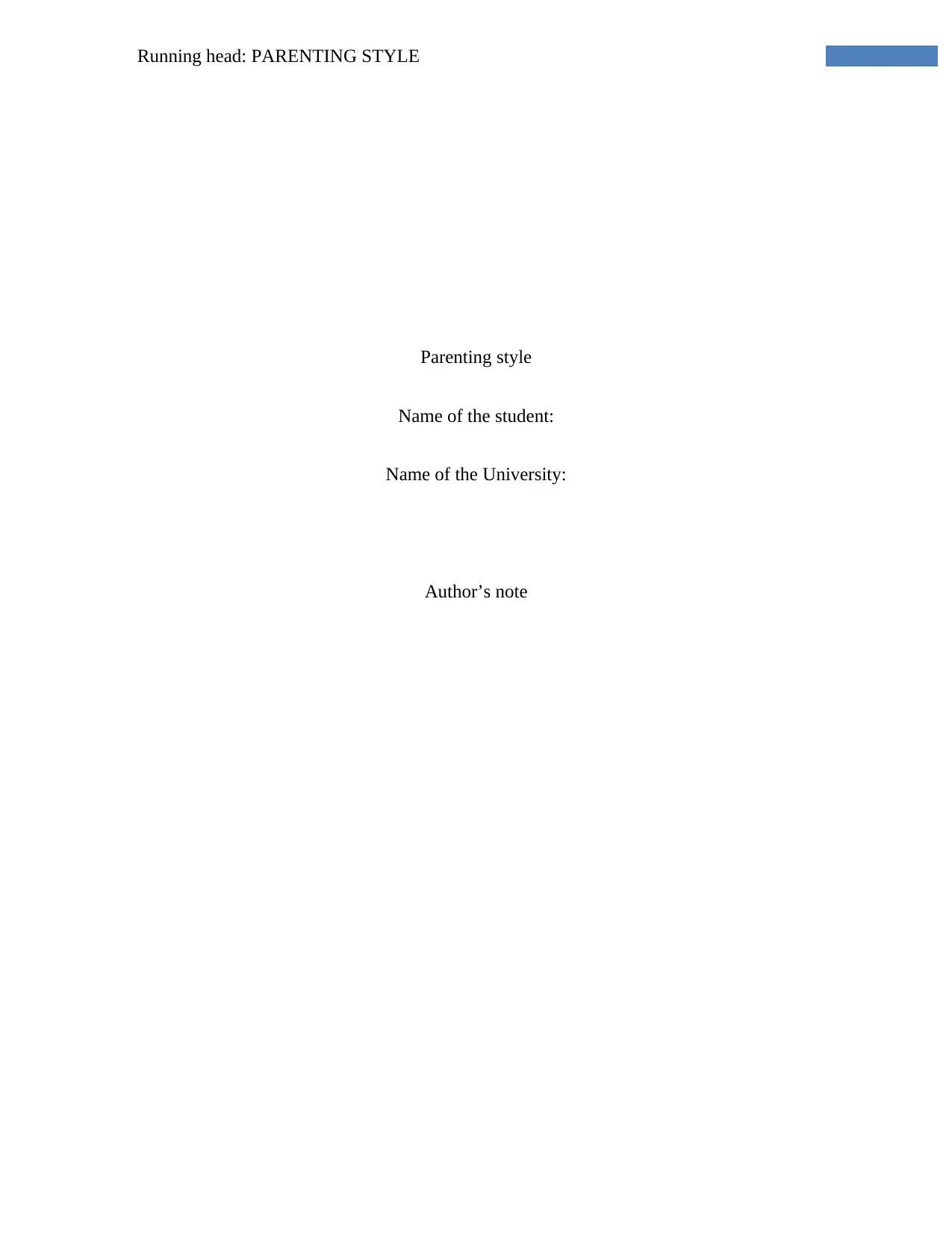
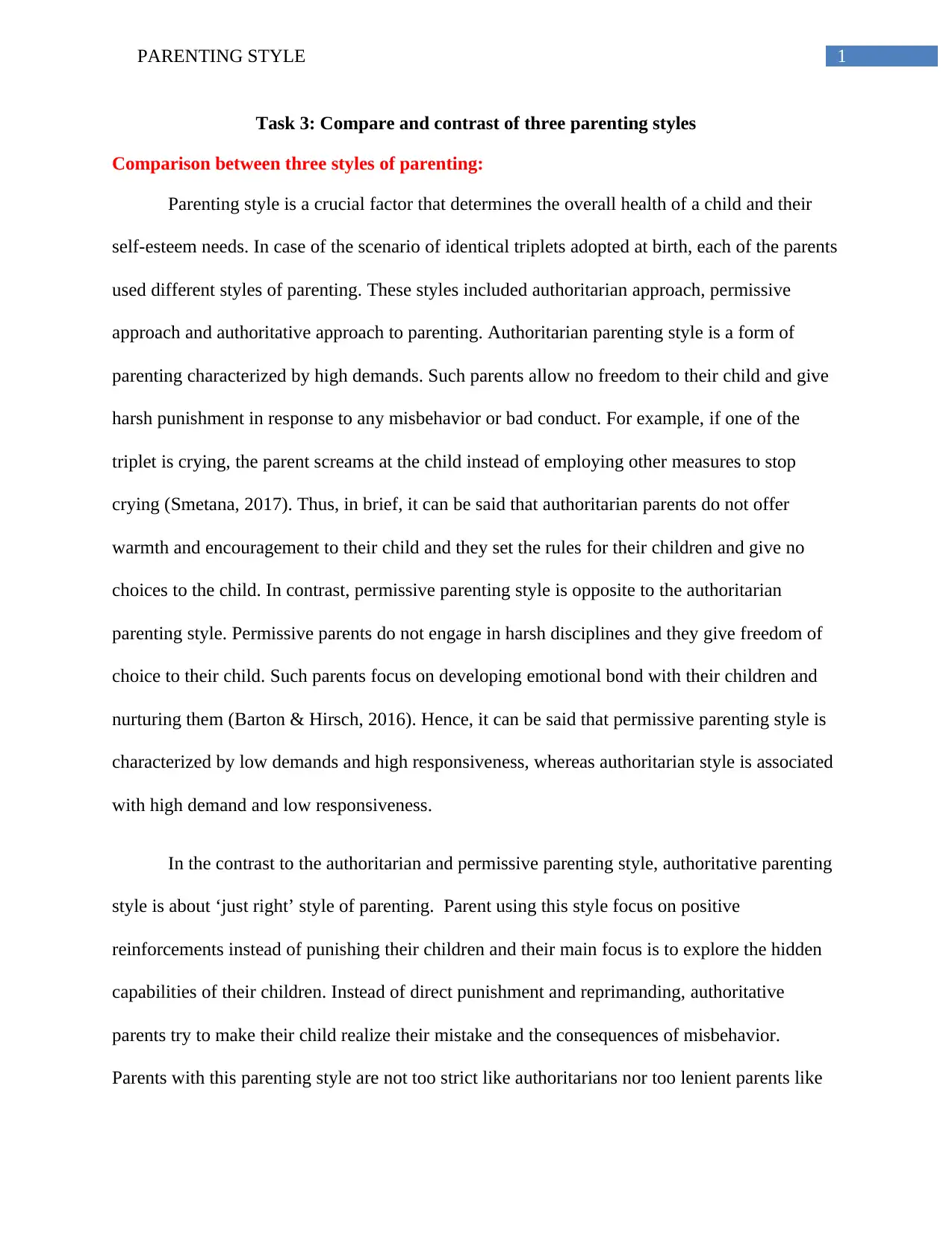
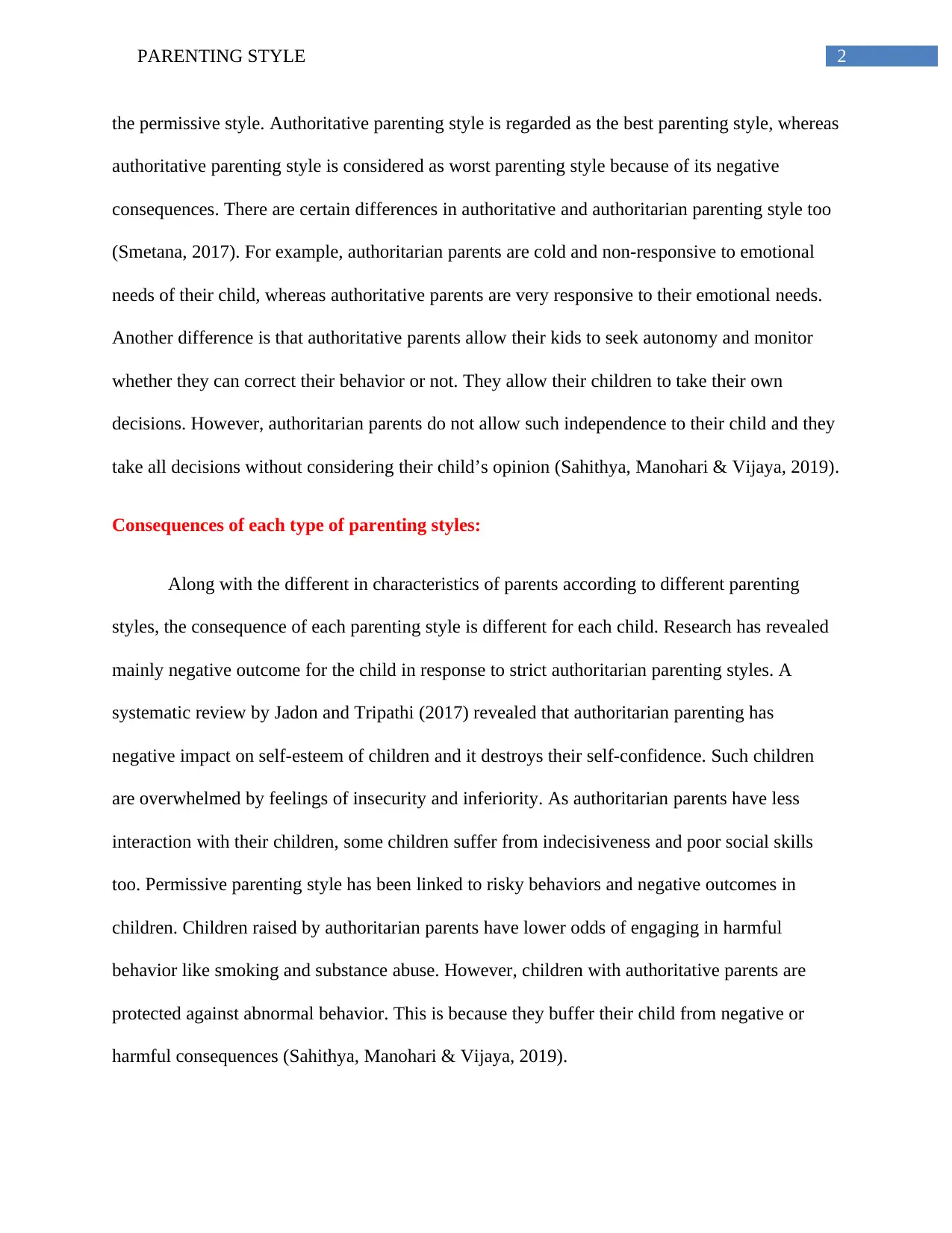

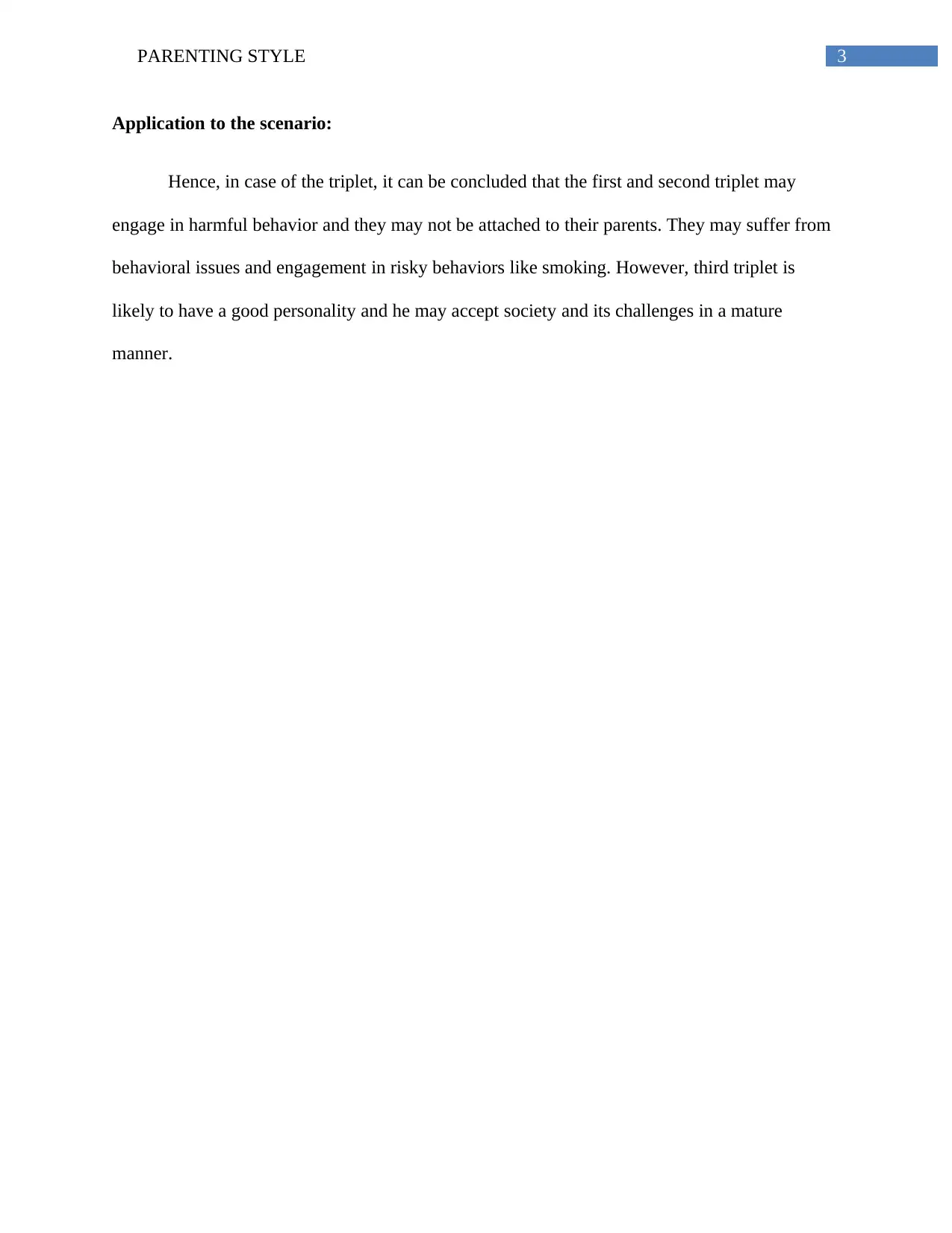
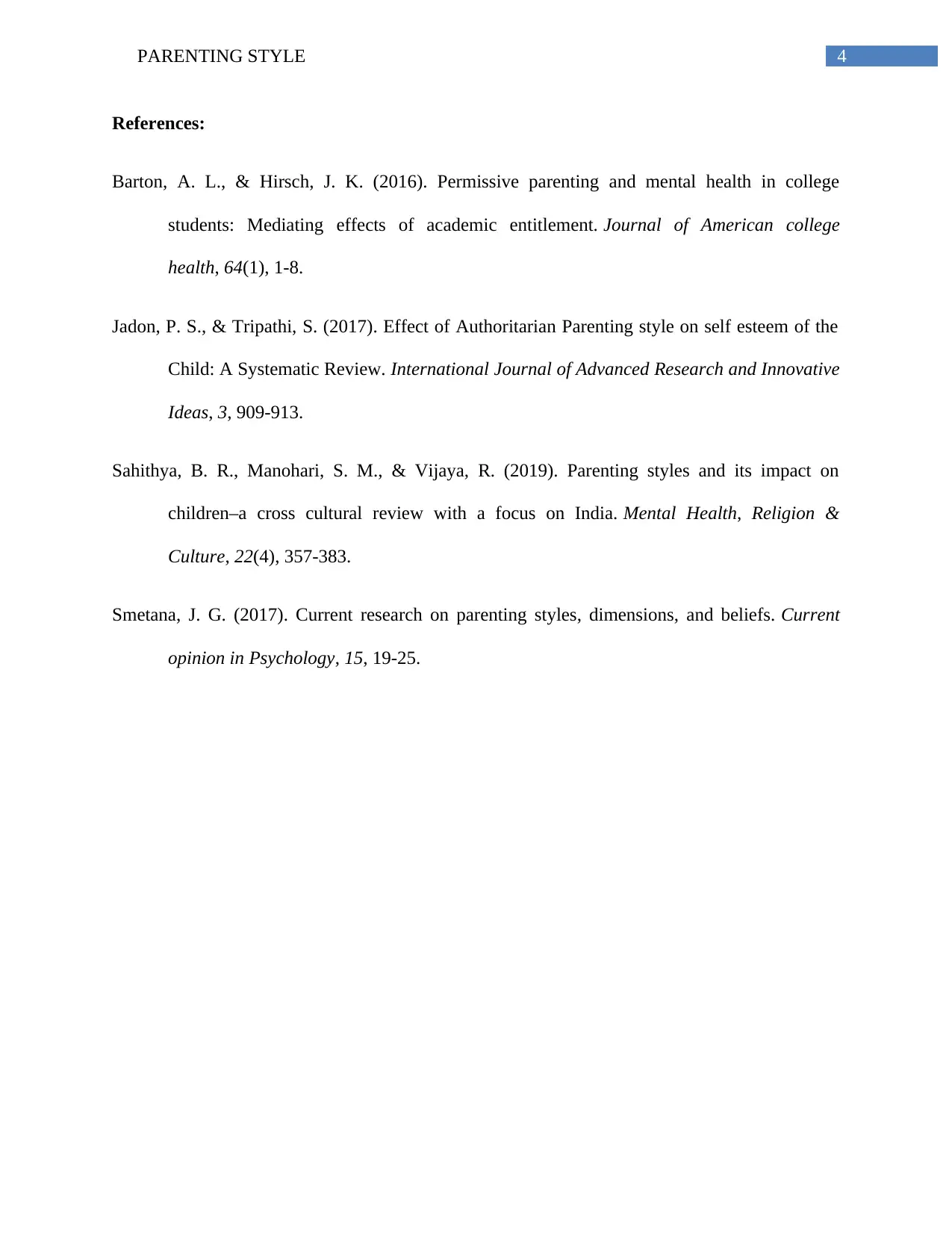






![[object Object]](/_next/static/media/star-bottom.7253800d.svg)